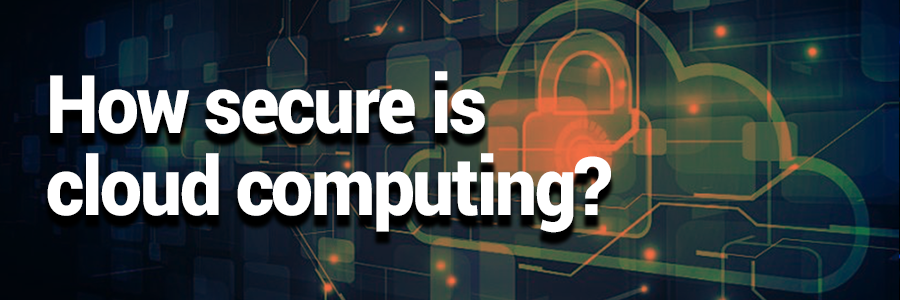
What is cloud computing? Cloud computing is a way of storing data via remote servers and hosted on the internet. Previously, data storage has been limited to personal computers and local servers.
‘Clouds’ can be accessed from any device, and are available to multiple organisations or individuals (known as the public cloud), to one company (enterprise) or as a hybrid or combination of the two.
There are benefits to using cloud computing, not least that it can mean cheaper upfront costs for IT infrastructure. Generally, it should make systems faster, more efficient and more reliable.
Cloud Computing Options
Free cloud storage is available from big organisations, such as Amazon Web Services (AWS), Microsoft Azure and Google Cloud, as well as companies which focus solely on storage.
With free cloud computing, each platform will offer different levels of service, so depending on your needs, there might actually be a cost involved. Terms and conditions can change unexpectedly, and you may incur charges if you go over your data storage limit.
Most offer between 5 and 15GB of storage, which is unlikely to be enough if you have large files and folders, multiple offices, lots of staff or hold client data as well as your own. There may be an additional charge for backups.
If you need to store a lot of data, paying for cloud services is a better idea. You could choose one of the well-known providers in the marketplace, such as those mentioned above, or you could choose to go with a specialist company.
Spend some time researching your options – most providers will offer both monthly and annual fees. Look at how much storage space is available, and if it’s based on user or device. Find out if there’s flexibility if your storage requirements increase or decrease.
Potential Risks
There are obvious advantages to having your data stored remotely, including removing the need for your own onsite servers and not having to send backup tapes to another location. However, there are downsides to cloud computing too, particularly for businesses.
Cloud storage is not 100% safe from cyber criminals and hackers, in the same way as personal or local data is at risk. Think carefully about the information you’re saving to the cloud, particularly if it’s sensitive, relates to patents, copyright or other intellectual property or includes personal data – yours, your employees’ or clients’.
Again, as with in-house devices and storage, your company data is still at the mercy of human error or malicious behaviour. It’s important to have strict policies in place around access (who, how and where), what types of information that can be uploaded, downloaded or transferred, and removing log-ins for staff who are leaving. Bring Your Own Devices (BYOD) also bring security challenges.
Another issue with public cloud computing is that your company’s data is stored along with that of other organisations and individuals. While access to data is controlled by log-ins and other credentials, these are also stored on the cloud.
Depending on how strong the passwords of other users are, there is a possibility of these being compromised and risk a breach through one of these third-party users. Using a password management system and encrypting anything sensitive limits hacker access further.
Cloud computing providers are expected to adhere to certain legislation, so make sure whoever you choose is compliant and committed to guaranteeing the security of your information. Check, too, how they’ll help if there’s any kind of breach.
It’s also essential that you check their privacy, sharing and ownership policies – you don’t want the storage company claiming your data or accessing it without your permission, particularly if they could profit from it in any way.
Using one of the larger, public cloud facilities means that you have far less control of your data, and you’re relying on their privacy settings. There is a high possibility of information being viewed by someone who shouldn’t have access to it.
Conclusion
While there are risks with cloud storage, these should be balanced with the many advantages. Just as with every other decision you make about your IT, systems and infrastructure, do your due diligence and ask for recommendations from trusted business associates.
If you already work with an IT partner, find out if they provide cloud computing services. If not, they should be able to advise you on the best solution, as they understand both the tools and your business needs.


You must be logged in to post a comment.